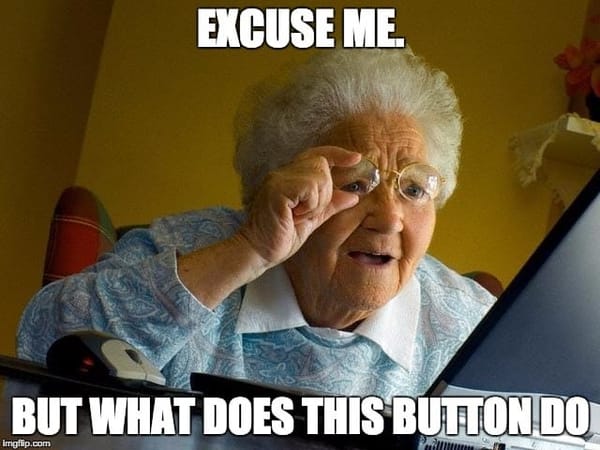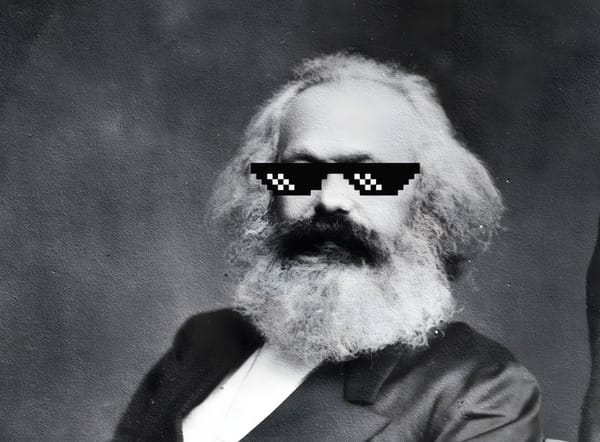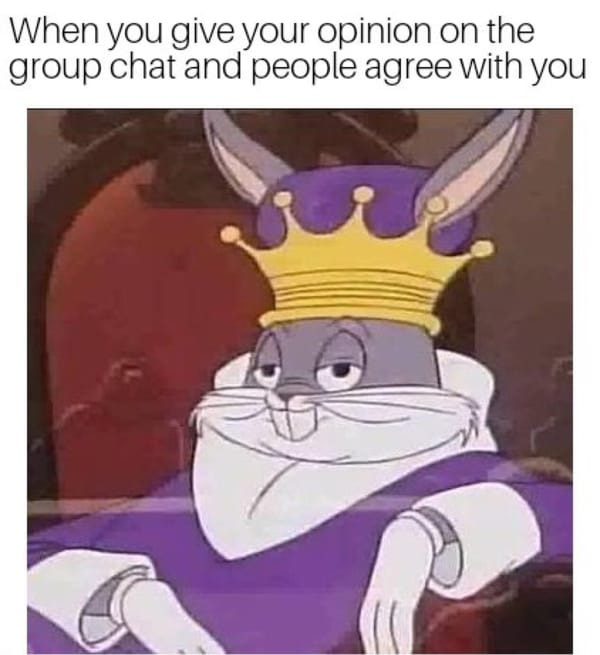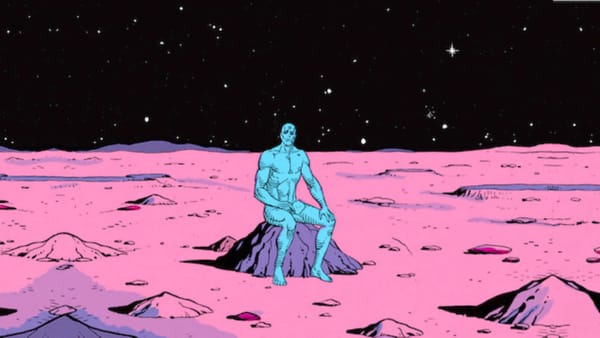Pouring GaaS On The Fire
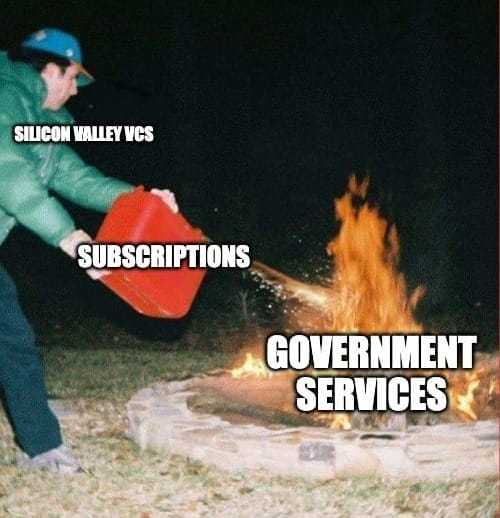
i. Some Background
In 2011, as the world continued to reckon with the immediate aftermath of both the Great Financial Crisis and people saying things like "winning" and "YOLO," investor and Man-Shaped Egg Person, Mark Andreessen, co-founder of the eponymous Silicon Valley venture capital fund, Andreessen Horowitz (a16z) published a now infamous essay entitled, Why Software Is Eating The World.
The essay argued what was already fairly obvious at the time, that traditional industries were being disrupted by software technology companies, and that software had become, and would continue to be, the primary driver of capital accumulation in the modern knowledge economy.
Man-Shaped Egg Person believed that this societal transformation was a good thing - Not only was everything becoming software, but everything should become software.
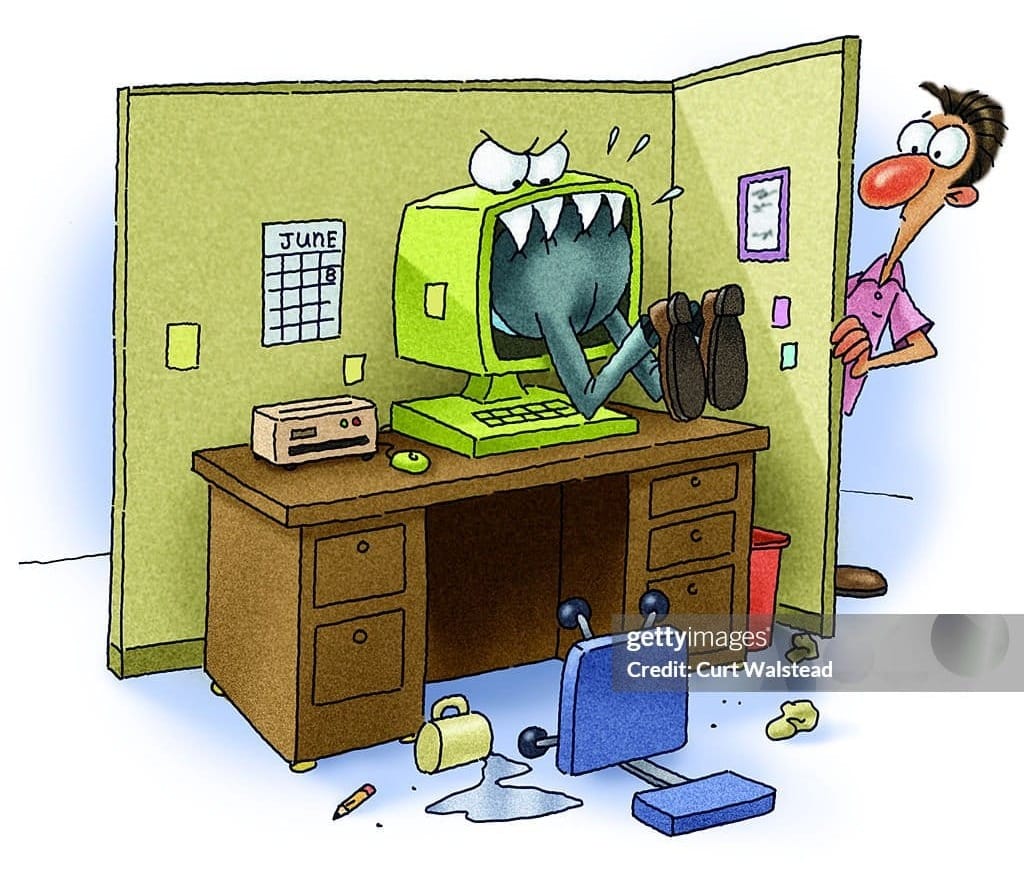
And with interest rates still effectively zero at the time, turning things into software was easier than ever as capital continued to flee Wall Street for Silicon Valley, where the possibilities of greater percentage yield were marketed as endless. And to some extent, they were endless. As long as money continued to be free flowing in a historically low interest rate environment and venture capital firms were willing to invest in tech startups on the sole criteria that the given startup's founder didn't groom himself, had dropped out of college, played World of Warcraft, and wore the same unwashed grey hoodie every day.
This was the beginning of the Software as a Service (SaaS) Era, a cloud computing-based business model where software is delivered over the internet on a subscription basis instead of being purchased once and installed locally.
In theory, there are benefits to a cloud-based SaaS architecture like easier product updates and security/bug fixes. Because you don’t need to force the user to install an entirely new version of the software manually, you can “push” updates to everyone at once, ostensibly making a product more secure and more feature-rich over time.
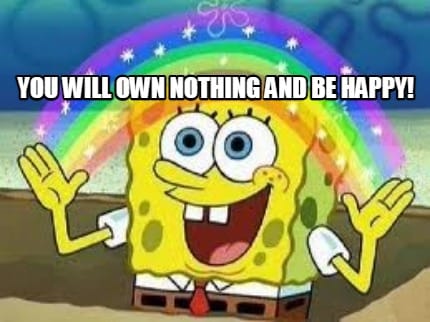
Instead of ownership, the SaaS model merely confers a license for the use of a software product on a weekly, monthly, or annual basis, a subscription to use the product as long as that license is paid for when the recurring, and ever-increasing bill comes due.
From a capital perspective, it’s much better to have your customers paying you a subscription fee each month, thus establishing recurring revenue, and customer loyalty, even if the customer has no reasonable viable alternative. SaaS products are also data-gathering machines as much as they are products, which in and of itself is often more valuable than the subscription fee they also collect.
The entire App Store model pioneered by Apple and then by Google Play was built on this premise, and “_______ as a Service” businesses sprang forth from the newly dug well of capital extraction where software was laid over everything to take a piece of every conceivable economic and non-economic interaction: Delivery as a Service (Amazon), Dating as a Service (Tinder), Transportation as a Service (Uber), Music as a Service (Spotify), Healthcare as a Service (One Medical), Design as a Service (Adobe Creative Cloud), TV as a Service (Netflix), Work Communication as a Service (Slack).
In 2023, more than a decade after his first essay, and after most of a16z's portfolio of companies had irrevocably transformed the world (mostly) for the worse by injecting subscription models and SaaS products into every possible aspect of life, the Man-Shaped Egg Person published a quite poorly conceived and ill-received sequel essay, The Techno-Optimist's Manifesto.
While the first essay in 2011 at least contained some grains of truth, albeit grains like the kind you would find in a peanut butter and jelly sandwich at the beach - as unwelcome as they were expected - the second essay is denser than a black hole made of assholes, and was widely lambasted as the pompous self-interested screed that it was.
He now argued, that even though almost everything in the intervening years had become SaaS products or intermediated via SaaS products, still, not enough things had become software.
And if you, dear reader have a myopic view about the prospect of needing to pay a subscription fee to use your toilet and your refrigerator, scan your fingerprint to buy groceries, or smack the side of your face to make a purchase while in AR glasses, well then you are simply a raging pessimist standing in the way of progress and you don’t deserve to be a part of polite society, per the self-proclaimed optimist himself.
"We believe any deceleration of AI will cost lives. Deaths that were preventable by the AI that was prevented from existing is a form of murder." - Marc Andreessen, self-proclaimed optimist.
Despite 2023 (and today's) different market dynamics and much higher interest rates, Silicon Valley's accumulated regulatory, financial, data and political capital—built through nearly 20 years of value capture and consolidation via world-eating SaaS software—had decided that there was still marrow to be sucked from the bones of what they had already devoured.

ii. Where Things Stand Now
For anyone confounded about what has been happening to and within the U.S. Federal Government these past weeks, Occam's Razor dictates that the simplest answer is the most likely one—that the venture capital tech class of Silicon Valley, having already seized control of nearly every mechanism and means of production within our knowledge and service-based economy, has finally reached the apex of their aspirations to apply software to everything:
To instantiate "Government as a Service" or GaaS.
Silicon Valley has long viewed government as an inefficient institution ripe for software "upgrades" — like celebrities obsessed with plastic surgery who, having exhausted other ways to spend their wealth, frantically pursue nips, tucks, lifts, and fillers in a futile attempt to outrun mortality.

Their lecherous gaze has now turned to the virginal Federal Government—the final frontier of institutional "inefficiency"—ripe for devouring by software and insemination by the long dick of technocapital.
Until now, the Federal Government, and the Constitutional Democracy it represents, have remained mostly unmolested, except for defense contracts and the standard SaaS products sold to government agencies (and every other business from small to enterprise).
What we are now experiencing is the merger of two ideologies: the conservative-libertarian and neoliberal vision of shrinking government and privatizing services (based on the belief that markets are more efficient), merged with Silicon Valley's technological capital and its tried and true system of extracting value from every possible source—data, labor, time, and money—through an intermediary layer of software embedded within and on top of government itself.
This unholy marriage of belief enables their ultimate dream via GaaS: a technocratic version of libertarianism where private companies can capture and monetize government services that were previously funded by taxes and Treasury debt and given away by the government for "free" to "freeloading" citizens, or as they view the citizens, an unaddressed market.
It’s important to distinguish between Government Services and Government as a Service and why it matters.
Government Services have always functioned as some form or another of socialist wealth re-distribution and re-apportionment of risk, even though the abstract concept of socialism is largely verboten in American political thought. In a progressive tax structure, the less wealthy pay a smaller share of their earnings in taxes and receive a higher proportion of value for those taxes in the form of services that benefit them solely (like food stamps), on top of services that benefit everyone (like public roads).
GaaS will aim to privatize as many Government Services as possible, using a regressive tax structure, taxing the lowest earners at a higher rate, to invest Government revenue and debt in the private technology industry preferred by the so-named "broligarchy," an industry which will be taxed at a lower relative percentage ostensibly to incentivize the creation of market-driven solutions to societal problems. In other words, to ensure the micro-societal market expression of “there’s an app for that” but at the macro level of the Federal Government.
The passive acquiescence of Congress to the slashing and burning of the very Constitution they are sworn to uphold is emblematic of a humiliating cuckolding in which our elected officials sit on a chair in the corner of a D.C. area hotel room, watching our institutions get brutally fucked by strangers, while they cry and get off on feeling bad about themselves privately and anonymously to the New York Times on background.

While, the outright deletion, dismantling, and disempowerment of entire Federal agencies by Elon Musk and DOGE is publicly justified as fighting "woke" ideology and reducing wasteful spending, the more obvious explanation is regulatory capture by Silicon Valley figures who, following the early Facebook mantra to "move fast and break things," aim to position themselves as parasitic intermediaries over all government functions as those functions are reduced to rubble, and so they can rebuild those functions in their own image as GaaS.
Think of any moral, philosophical, and rationalizing excuses you hear for the disassembly of our institutions as a metaphorical Vincent Adultman from Bojack Horseman.
Vincent Adultman is a real business adult doing real adult business, but underneath the trench coat are just some adolescent children stacked on top of each other pretending to be grown up, even though no one but Bojack ever seems to notice.
Similarly, venture capitalists create the facade of an "adult" technology industry, wearing a trench coat of benevolent paternalism vis-à-vis innovation. But what's underneath their coat is far less than twee than Vincent Adultman's upwardly mobile children.

What they cover up is pure profit motive stacked on top of pure profit motive, just dressed up to look less obvious. They aim to extract maximum financial benefit by creating artificial market inefficiencies through the dismantling of previously viable government services—only to reimplement those same services through subscription models in the private market.
It's rent extraction via GaaS all the way down.
The results of GaaS will be as predictable as they are depressing - many of which are already unfolding in some way, but now they will be scaled up to the level of the Federal Government.
- Public Education can be replaced by “paywalled” private charter schools with real human teachers, while AI tutors and teachers are the educators of public schools.
- Public Safety can be replaced with private security contractors, automated surveillance systems, autonomous drones, and predictive policing algorithms.
- Medicare and Medicaid can be replaced with diagnostic chatbots, subscription-based telehealth services, and wellness score systems that determine eligibility care and are tied to mandatory usage of even further subscription-based health surveillance smart monitoring products.
- Social Security can be replaced with private investment accounts tied entirely to the stock market and Bitcoin.
- Financial Regulators can be replaced with blockchain-based automated compliance systems owned by the very financial institutions that the systems monitor.
- The Department of Labor can be replaced with gig economy platforms, algorithmic hourly wage determination, and automated scheduling optimization systems.
While these people claim to champion the free market and vociferously advocate for the autonomy of the individual and decentralization of power, they somehow simultaneously seek to re-centralize that power around themselves – creating GaaS-planned economies within their own platform fiefdoms that are protected by a moat of total institutional capture – the exact opposite of the ideology they claim to believe.
We must look beyond the blustery high-minded rhetoric of “change” and “reform” and “efficiency” and “preventing fraud” to examine the profit motive driving the private actors who stand to benefit the most from the sudden disappearance of government agencies and functions.
While they will undoubtedly find some legitimate issues that need reform, efficiency improvements, or fraud prevention, their methods of discovery matter far less than their intended solutions to both the actual problems they find and the ones that they invent as excuses.
As services inevitably privatize into GaaS, citizens will become dependent on new and "efficient" products to receive essential services, forced into software and app-based GaaS relationships governed by oblique Terms of Service, tiered access, paywalls, and of course, advertising, and from which escape becomes nearly impossible – which is precisely the goal.
The best form of product lock-in and audience capture is the network effect: you have to participate because everyone else does and you can't leave because no one else can.
But the transcendent form of product lock-in occurs that network effect is government-mandated.
Their dream is to turn citizenship itself into a recurring monthly payment through “public-private partnerships,” where the only way to opt out is to forfeit the rights of citizenship.
The concept of GaaS is not fiction.
Every potential outcome predicted here stems from real ideologies, political economics, and technology business trends that currently exist IRL in parallel and collaboration with the ongoing pillaging of our institutions.
But I choose to believe that this is what is happening not because it makes the most sense – although it does make the most sense.
I choose to believe that this is what is happening because if Government as a Service is not the ultimate goal, as bleak as that may sound, I am genuinely terrified to even contemplate what the alternative goal might be.
That was pretty heavy, y'all. Below please find some cultural enjoyment!
🎧 Free Your Earballs
Early contenders for the Best of 2025 from Boldy James and Ela Minus who have both been doing phenomenal work in the respective genres for years, who have both leveled up tremendously on their recently released LPs.
⛳️ Hit The Links
An article about fighting the system by building an impenetrable tank out of a bulldozer.

The looooongest and best analysis of Eyes Wide Shut you could ever hope to find.



